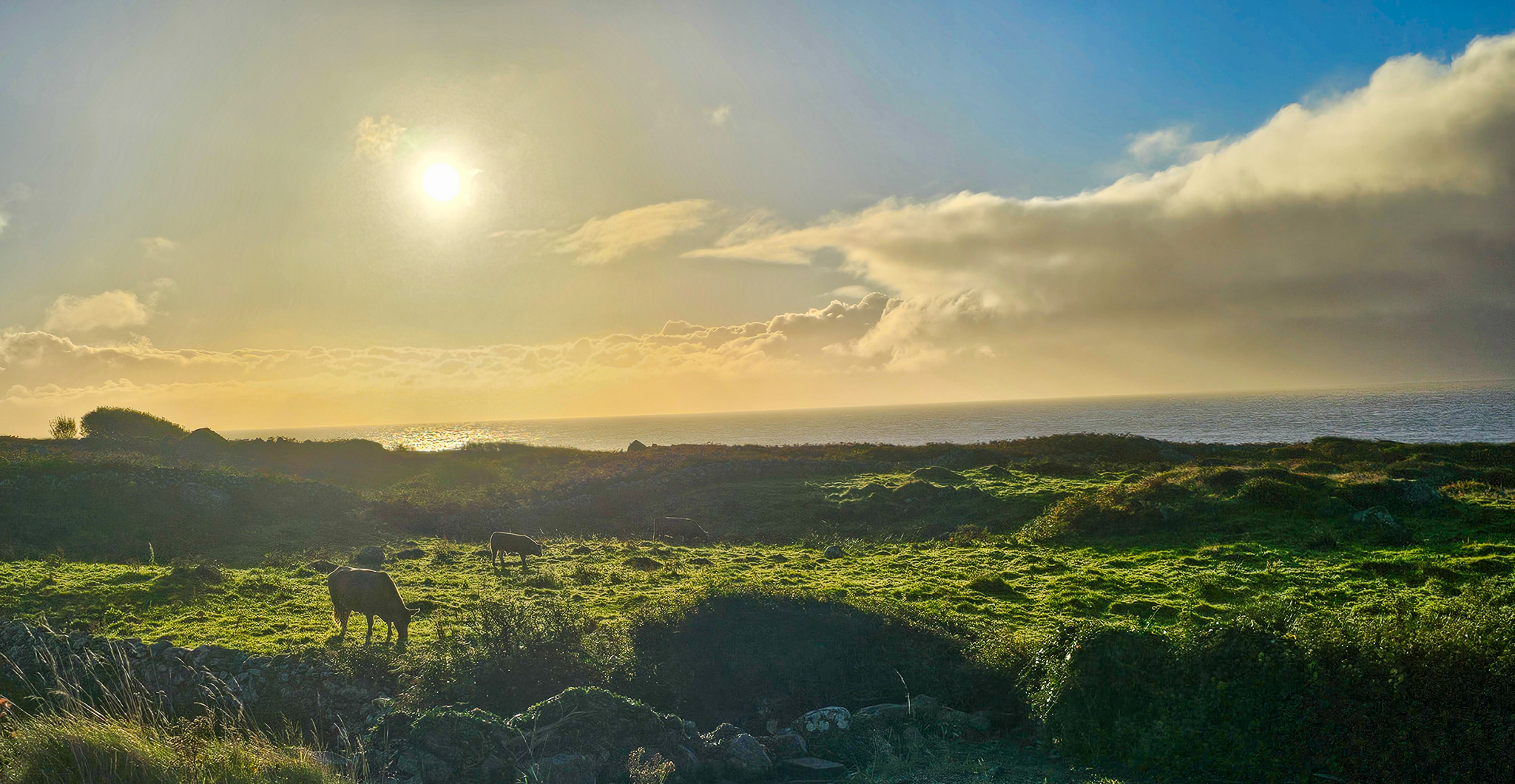You can find social entrepreneurs in the most remote places. Some may not even realize they are social entrepreneurs, yet they work diligently to create positive initiatives in their local communities. In the MERSE project, it’s precisely these people we encounter.

MERSE
KBT Vocational College is a project partner in the Interreg NPA project MERSE (“Business Models Empowering Rural Social Entrepreneurship – voicing the rural norm”). The project will transfer and develop better adapted business models, support structures and conditions for rural social enterprises. It will enhance transnational knowledge and learning of social enterprises, create networks to better connect social entrepreneurs with support.
Duration: 2023–2026
Website: www.interreg-npa.eu/projects/merse
Funding: Interreg NPA
Social Entrepreneurship in the Rural Ireland
Recently, there was a project meeting in Ireland. On an island called Inis Mór, we learned how the local population works towards positive and sustainable development in their community. The island is the largest of the three Aran Islands, known for knitwear, especially the “Aran sweater.” In the past, about 80% of the population worked in fishing and 20% in tourism. Now, the numbers have reversed.
Tourism can be positive, but it also has its downsides. Thousands of tourists visiting the popular attractions lead to wear and tear on the landscape—something seen in Norway and many other countries as well. On the two smaller islands, water supply is also a challenge.
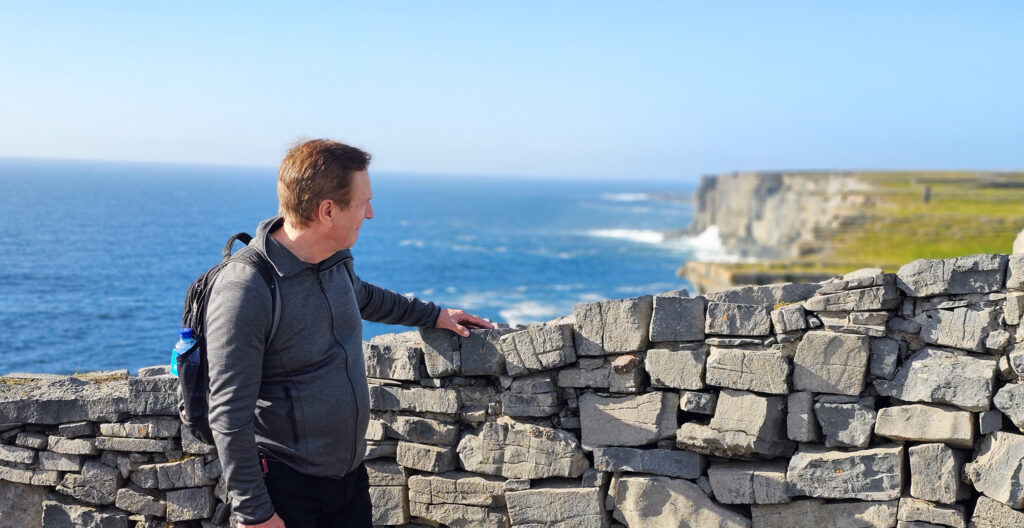
Cooperatives for a Sustainable Local Community
So, what can they do to create a more sustainable community? One of the strategies is forming a cooperative that includes many small social entrepreneurs and committees. The cooperative works with everything from initiatives to keep young people on the island as long as possible to exploring whether the island community can become self-sufficient in electricity. A recycling facility, which is continuously being developed, leads to more reuse and less waste that needs to be transported off the island. This facility also creates more jobs, as does a care center built a few years ago.
There are several similarities between the small community on the Aran Islands and rural communities in Norway: long distances to certain services and young people moving to the cities. At the same time, we got the impression that there are many positive initiatives underway, particularly within the cooperative. The study visits to Inis Mór will be an important source of inspiration for MERSE as we continue to explore business models for social entrepreneurship in rural areas.
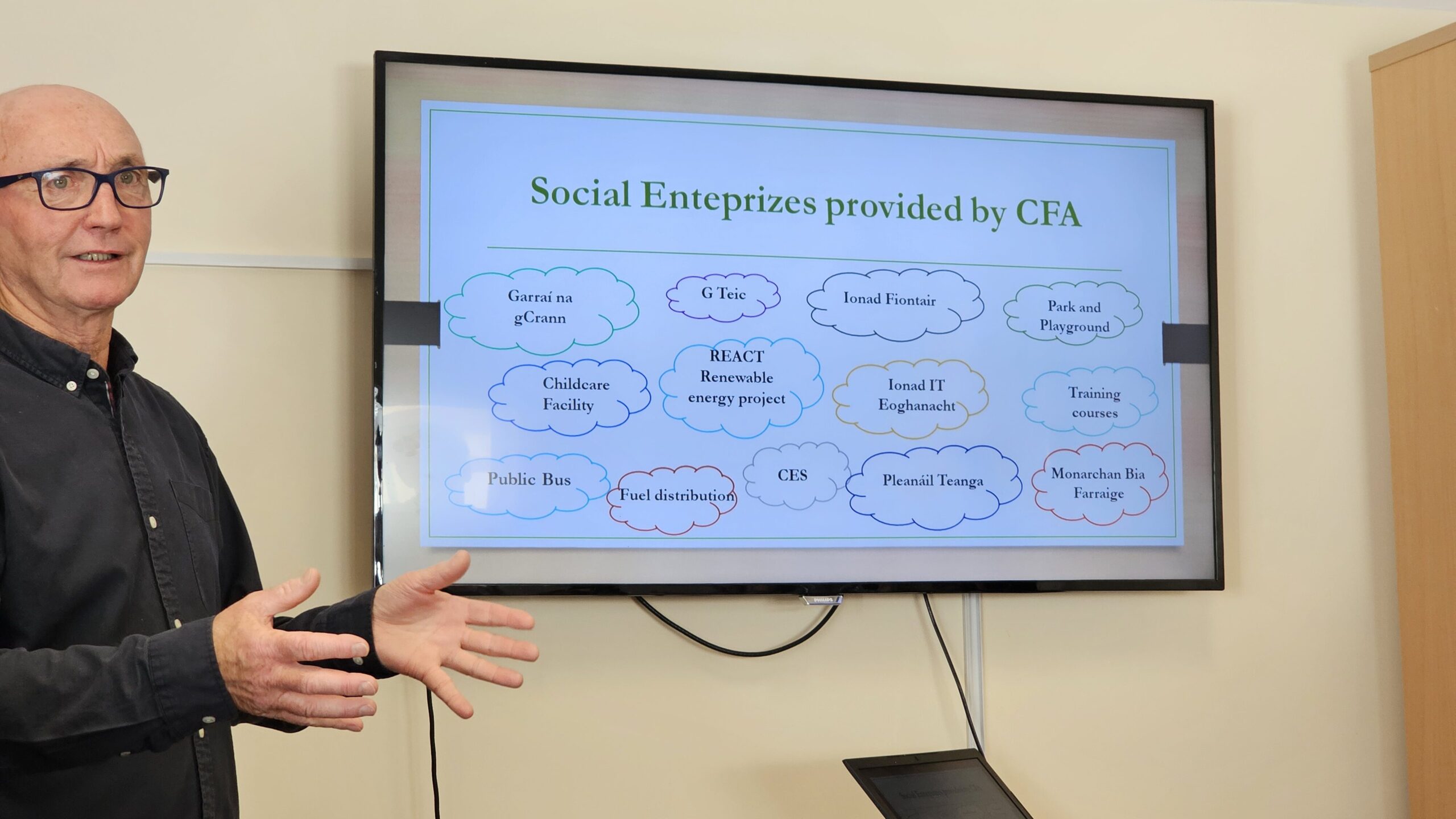
Training for Entrepreneurs
In parallel with the project gathering for MERSE, a seminar was held for social entrepreneurs from rural areas in Norway, Sweden, Finland, Iceland, and Ireland. These were selected as “best practice” examples from each country.
The seminar is part of the “Facilitator Program,” developed and delivered by the Social Enterprise Academy in Scotland. The program provides tools and methods for facilitating support for developing social enterprises and organizations in rural areas. Participants engage in both digital and in-person gatherings throughout the course, which lasts about 1.5 years.
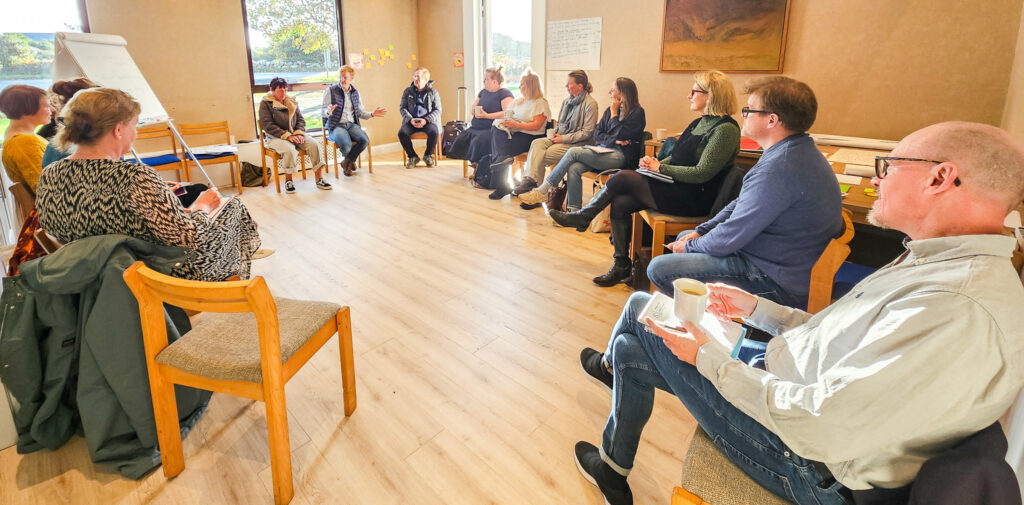
Entrepreneurs from Trøndelag Contribute to Strong Local Communities
From Norway and Trøndelag, Veronica from Eikra gård near Stjørdal and Jarle from the Welfare Building in Hasselvika participated. Veronica describes Eikra gård as “a project, a dream, and a goal” they have worked on for many years. The vision is to create a place for everyone, regardless of ethnicity or background—a place where you feel welcome and safe, where you can find inspiration and motivation through interaction with both people and animals, and become integrated into the community in a natural way.
Jarle and his colleagues are working to revitalize the welfare building at Hysnes Fort in Hasselvika. At the welfare building, there are movie screenings, a hunting simulator, concerts, and much more. Collaborative projects between various local actors, such as the local band, theater groups, and handicraft associations, help create a sense of community in an area with large distances. When something is happening at the welfare building, people come from both Hasselvika and other nearby communities. Those who don’t drive often catch a ride with fellow villagers.
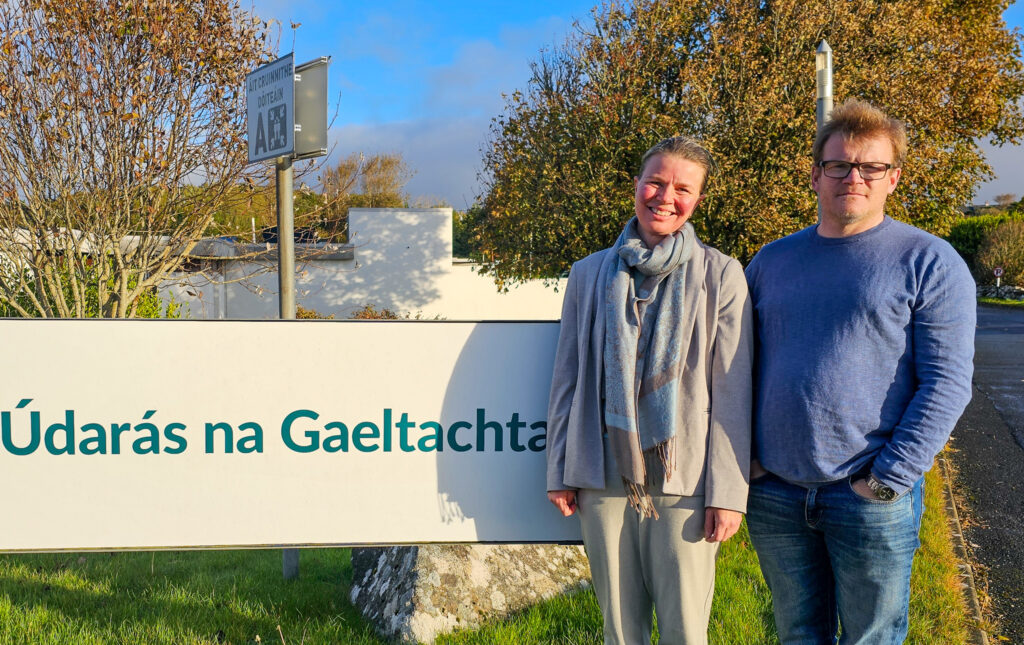
What We Have Done in MERSE and What’s Next
During the first work package of the project, we identified some examples of “best practices” in the participating countries. Some of these are included in a facilitator program run by the Social Enterprise Academy. Here, you can read about all the best practice examples MERSE has connected with. Additionally, we conducted a literature review and a survey in all the participating countries. The results from work package 1 lay the foundation for work package 2, which begins this fall.
Work package 2 focuses on support structures for social entrepreneurs. Among other activities, we will host several webinars. During 2025, the project will develop a digital platform with useful tools for social entrepreneurs in rural areas. This fall, we are working on the content and practical functionality of this platform, a topic that was also discussed during the gathering in Ireland, where we held a workshop on the “journey” of a rural social entrepreneur. What challenges are likely to arise, and what types of support structures are needed?
MERSE is one of the development projects that could also be useful for education in social entrepreneurship, and we look forward to the continuation. Here, we gain first-hand knowledge from other countries, which can help further develop the field.
Horizontal principles
As a part of being Interreg NPA funded, the project partners have decided on some horizontal principles within three areas. First we sent in suggestions on practices. On Ireland, we voted for 3 practices in each categories, and now we are going to implement them both in the project and the project organizations.
Towards a greener NPA!
- Engaging with local businesses and stakeholders to organize events and activities.
- On-line meetings are norm for most meetings, board meetings,committees and such.
- Local sourcing; source event materials locally to support the community ad reduce transportation-related emissions.
Towards a more inclusive NPA!
- Including diverse communities and stakeholders when developing and implementing projects.
- Culture; Foster a consciously inclusive culture and champion the value of diversity. Policies: Reviewing existing policies and recommend changes to align with the inclusion vision.
- Work for a better and fairer welfare system. Work actively to ensure user participation and experience expertise in public systems. Promoting and ensuring inclusion, diversity and equality.
Towards a gender balanced NPA!
- Ensure that different genders are represented in different work groups and teams.
- Focus on female entrepreneurship to empower women entrepreneurs in business.
- Raise awareness about gender stereotypes and their impact on decision-making.
Údarás na Gaeltachta – A Supporter of the Local Community
The project gathering in Ireland took place at Údarás na Gaeltachta, a short bus ride outside the city of Galway. The main purpose of Údarás na Gaeltachta is to ensure that Irish remains the primary language in the Gaeltacht area and is passed down to future generations.
Údarás na Gaeltachta supports 33 local actors who contribute to the development of the local community. These actors receive operational support and are committed to following the same strategy as Údarás na Gaeltachta. In recent years, Údarás na Gaeltachta has developed a strategy for social entrepreneurship, which did not exist before. We obtained a copy of this strategy and will study it more closely when we return to Norway.
This text was translated from Norwegian with help from an AI-tool

